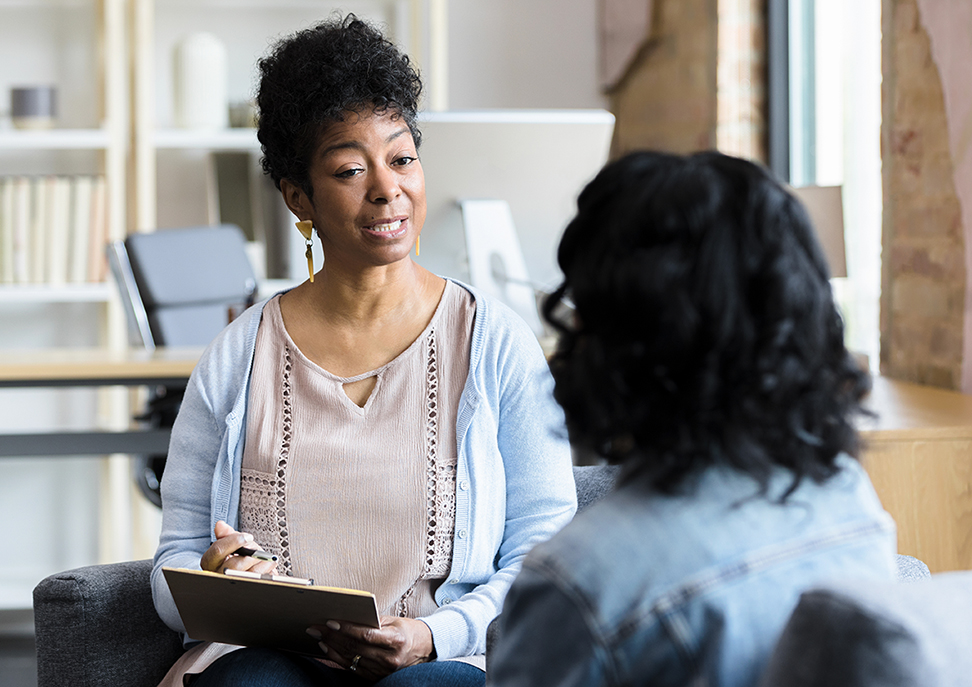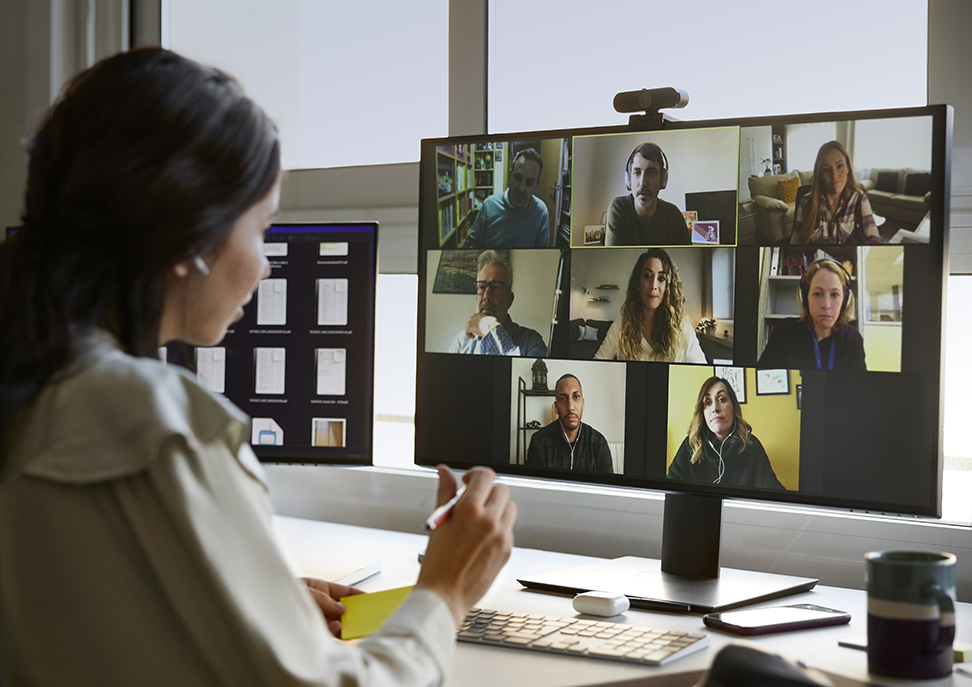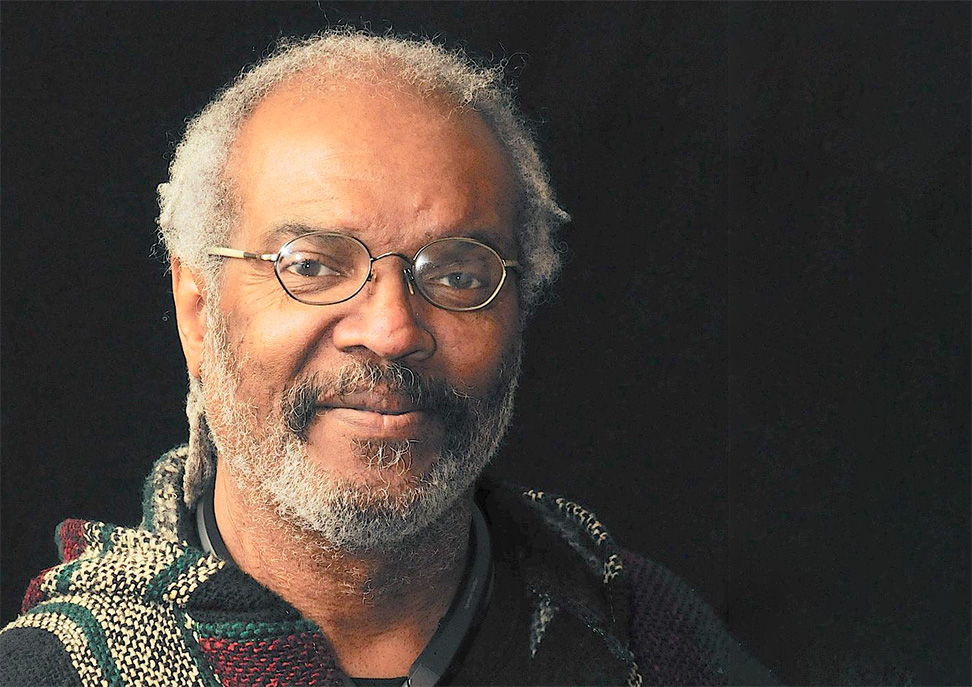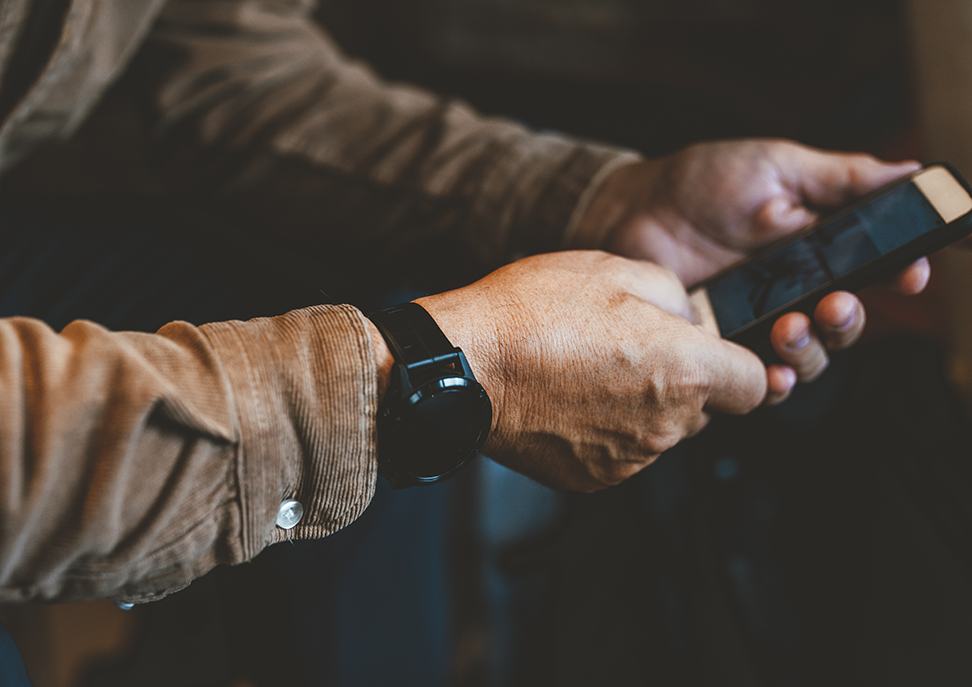“Don’t just survive, thrive. Find your path of purpose.”
Ray Charles Lay has his own version of the blues.
He shares a name with the famous singer. But All of Us Participant Ambassador Ray Lay tunes into his own soul, openly sharing lessons from a life marred by trauma. He was incarcerated at age 14, then served in the military, then found himself homeless. The honorably discharged and disabled U.S. Marine walked a long road to recovery. Now he focuses on helping others with mental health issues. He works toward a future where mental illness is better understood.
Ray’s mantra sustains his daily rhythm: “Instead of being bitter, let’s strive to get better.”
Serving as an All of Us Participant Ambassador and an advisor to several other national groups has given him a strong sense of purpose. He shares his personal experiences to help those around him.
Childhood Trauma
Born in Mississippi in 1955 and the youngest of four boys, Ray and his family moved to Indiana when he was 4 years old. His father was an African American World War II veteran. He wanted to move away from the South where Jim Crow laws enforced racial segregation. His father got a job as a mechanic in Gary, Indiana, but had to work the overnight shift.
For Ray, the struggle with mental illness started young, though he didn’t know the diagnosis until he was an adult. He traces the start of his troubles to a near-fatal car accident when he was 5 years old. His father was driving back to Mississippi with him and his mother. Ray was in the backseat when the car collided with a bus on the highway near the small town of Hayti, Missouri. The impact sent Ray hurtling through the windshield onto the highway. He lay there unconscious, surrounded by glass. Everyone survived, but Ray was in a coma for several weeks.
“I still bear the scars. My life went from bad, to worse, to violent,” Ray said.
He started acting out at school, on the playground, and at home, becoming aggressive and disoriented. His parents sent him to a psychiatrist and disciplined him. They sent him at age 8 to the Indiana Boys School for a year. This was a state-run juvenile detention center that had a history of violence, abuse, and escapes. At age 14, Ray stole a car, got his hands on a gun, and killed a 20-year-old man who he said had bullied and attacked him.
A court-appointed attorney reviewed his background. Ray was found incompetent to stand trial by reason of insanity. He was committed to Beatty Memorial Hospital. He spent two years at the state-run maximum-security mental health facility.
Soon after his release from the hospital at age 18, Ray noticed a U.S. Marine handing out information. Ray asked if he could join. Within months, Ray was stationed in San Diego, California, then sent to the Philippines, South Korea, and Japan. Through his military service, he was able to complete his high school diploma and begin college preparatory classes.
In 1978, less than two years in, Ray’s service abruptly ended after a psychotic episode in Japan. He returned to Gary, Indiana, feeling devastated and defeated. He became homeless while misusing drugs and alcohol.
Finally, in 2003, at age 48, Ray took the advice of family and friends and visited a VA hospital. It was there that Ray first learned about his diagnosis. A social worker asked if he was being treated for schizophrenia.
“What’s that?” Ray said.
Road to Recovery
Ray read through his military files and hospital history. This allowed him to learn about his mental health history, accept his diagnosis, and change his behavior. He became sober and stopped using illegal drugs.
“I have six bullet wounds, three stab wounds, yet I am still alive,” Ray said. “I am a man of hope. I believe my iota of hope needs to spread to others so that they can see recovery is possible. It is real and worth pursuing.”
Now, at age 68, Ray owns his own home and business in Indianapolis. He aims to “pay it forward” and help his community. He trains correctional officers, police officers, and first responders. He openly details his experiences and offers de-escalation techniques. Ray is a Department of Veterans Affairs Peer Support Specialist. He is a Certified Recovery Specialist. And he is a member of the National Alliance on Mental Illness Board of Directors.
He actively cultivates his own personal drum beat of support. And he happily repeats to others on the journey: “Don’t just survive, thrive. Find your path of purpose.”
Ray believes his participation in All of Us will help advance mental health discoveries.
All of Us Participant Ambassador
Forty-eight participant advisors help support the program’s goals. They offer feedback on strategies and governance by serving on committees, boards, and task forces. In his role as a Participant Ambassador, Ray was a strong advocate for the program’s planned training of staff who would be helping participants complete two new All of Us surveys on mental health and well-being. As a result, the program offered several trainings on managing participant interactions, handling stress and providing a list of mental health resources.
“Ray spoke so powerfully about his own experience,” said Jordan W. Smoller, M.D., Associate Chief of Research in the Department of Psychiatry at Massachusetts General Hospital. He co-led the All of Us task force developing the surveys. “There’s a certain authority that comes from having his experiences. His insights help destigmatize and demystify what mental illness is.”
Ray's namesake might have turned blues into soul, but Ray Charles Lay is turning his blues into helping other souls.
“I am committed to helping people stop listening to their negative internal voices,” Ray said. “I’m also a stigma buster, advocating for an end to judging people.”
Read more about Ray in the full Voices of All of Us profile.









